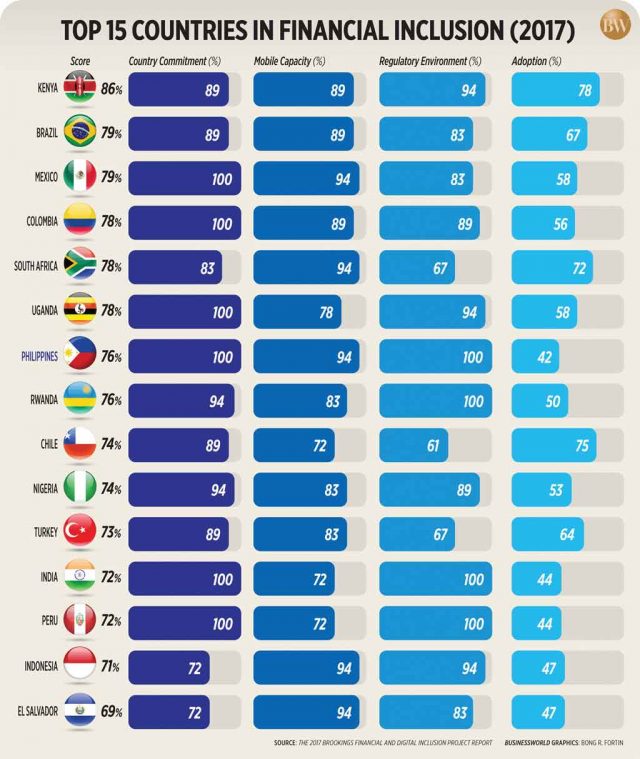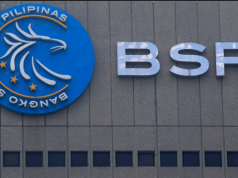
MANILA – The Philippines remains Asia’s leader in financial inclusion due to policies supportive of wider banking access, the Brookings Institution said in a report, even as the country slipped a rung from its rank a year ago.
The Philippines also remained the world’s fourth best in terms of access to financial services, according to The 2017 Brookings Financial and Digital Inclusion Project Report published in August that evaluated the efforts of 26 countries in offering “affordable” and “secure” financial channels to the public.
The Philippines maintained its 76% overall score and specific grades per indicator from a year ago, remaining in a tie with Rwanda.
But it was overtaken by Mexico, which jumped over the Philippines this year from fifth spot in 2016 to place second this year with Brazil, both with 79%.
Kenya remained the global leader in financial inclusion with 86%, according to the Washington-based think tank, citing the other economies that bested the Philippines as Colombia, South Africa and Uganda with 78%.
Brookings gave the Philippines a perfect score of 100% for its commitment to broaden financial inclusion and for its regulatory environment to enable greater access to formal money channels. Mobile capacity was rated 94%, with some 74% of Filipinos subscribed to telecommunication services. The country got its lowest score — 42% — in adoption of financial technology.
FACTORS
Brookings cited new and updated regulations introduced by the Bangko Sentral ng Pilipinas (BSP) over the past year that encourage financial transactions through formal banking platforms.
“The BSP has issued a series of circulars aimed at supporting digital financial inclusion,” the Brookings report read.
“Examples include circulars that enhanced regulations for pawnshops, remittance agents and other transfer companies that facilitate access to basic financial services; allowed banks to use third-party cash agents to help expand access to financial services; and permitted certain institutions to implement reduced know-your-customer rules for low-risk accounts.”
The Brookings report also cited the central bank’s latest efforts to set up a government-run identification system covering biometrics and basic client data that has been said to help client verification and allow more Filipinos to open bank accounts.
The National Baseline Survey on Financial Inclusion released by the central bank in 2015 showed that only 43% of Filipino adults held savings, with 68% of them opting to keep their money at home rather than place them in bank deposits.
The central bank is looking to prod more Filipinos to use e-payment channels under the National Retail Payments System initiative, which aims to increase the share of online transactions to up to 20% of total transactions by 2020 from one percent currently.




